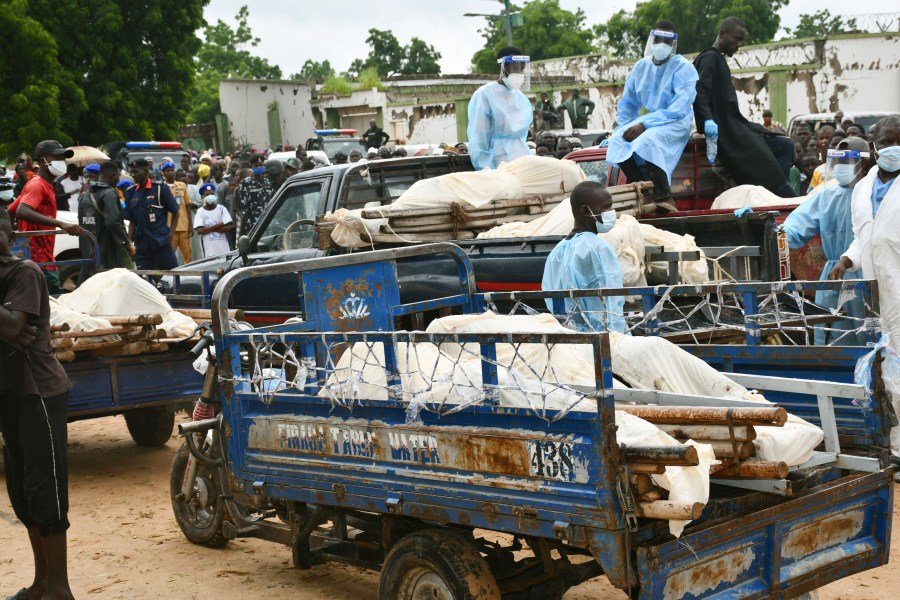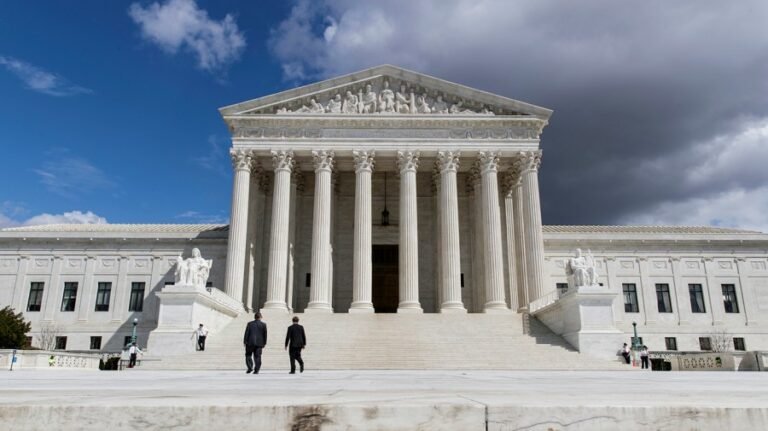
Today, Nigeria is the deadliest country in the world for being a Christian. If Islamic terrorism there continues unchecked, it could become a global threat.
Since the beginning of 2025, the International Society for Civil Liberties and the Rule of Law reports that more than 7,000 Christians have been killed in Nigeria, far surpassing all previous years. But the numbers don’t adequately convey the horror of these deaths.
In the middle of one night in April, Islamic Fulani herdsmen came by the hundreds to overrun a Christian village in central Nigeria.
“We were asleep at 2 a.m. when they entered my house and killed my husband and two grandchildren,” one woman said.
Evidence of such attacks has streamed in to iReach Global, a relief agency on the ground in Nigeria helping persecuted Christians. One video shows dead mothers lying on the ground with crying babies strapped to their backs. Another shows dozens of bodies being dumped into a mass grave and covered with fresh soil while survivors look on and weep.
Yet the Nigerian government, like other governments in the region, continues to convey an air of indifference to the plight of its own Christian population.
Boko Haram and other terrorist groups employ mass kidnappings, demanding ransoms and forcing women into sex slavery. Last year, armed groups kidnapped 7,568 people, including 200 to 300 school children as young as 8 years old.
And Nigeria’s issues are just part of a larger problem. Nigeria is just one of 10 countries in Africa’s Sahel region, stretching across the continent, south of the Sahara Desert. More than half of all global terrorism deaths in 2024 occurred there. And those numbers are climbing, according to the 2025 Global Terrorism Index, as jihadist groups seek to impose Sharia law and expand their territory.
The UN’s counterterrorism chief recently highlighted the possibility that “a vast territory stretching from Mali to northern Nigeria could fall under [extremist groups’] effective control.”
A Sahel Caliphate is already beginning to take root. The al-Qaeda affiliate Jama’at Nasr al-Islam wal Muslimin and Islamic State West African Province groups tax the people under their control and offer services like Sharia law courts, health and social services, and fundamentalist education programs in return. As they and other jihadists gain stability, they gain the ability to expand into greater West Africa.
If the jihadist influence grows, the humanitarian crisis will be catastrophic, providing a breeding ground for international terrorism. The Sahel is projected to reach a population of 500 million by 2050, and if the region falls under the influence of militants, it could form an Islamic caliphate.
This is not just a human rights issue — it is a global security issue that must be addressed quickly. An agreement is needed by which the nations of the Sahel decide to uphold religious freedom and tolerance between Islam and the other Abrahamic faiths.
A new bill introduced by Sen. Ted Cruz (R-Texas) is a great start. It calls for Nigeria to be designated a “country of particular concern” by the State Department, and for targeted sanctions against Nigerian officials who facilitate violence against Christians and other religious minorities.
The US should also designate other nations in the Sahel as countries of particular concern and impose targeted sanctions on sensitive exports, while also offering increased aid and security cooperation. As these nations demonstrate real progress, the “country of particular concern” designation and sanctions should be lifted.
In addition to quickly passing Cruz’s bill in the short term, the West must make it a priority to work in the long term to facilitate a “Sahel Abraham Accords” whereby states in the Sahel proclaim Islam as a religion of peace towards the other Abrahamic faiths. This would undermine the formation of a Sahel Islamic Caliphate, as local imams and other religious leaders would be empowered to push back against the jihadists who seek a state opposed to other faiths and cultures.
A Sahel Abraham Accord would shift the conversation from merely a human rights crisis to a global security imperative, because a Sahelian caliphate the size we now see emerging could also threaten the West, especially given its close proximity to Europe.
Religious freedom is not a luxury in Africa. It is the foundation for global peace and stability.
The only path forward for the West to pursue peace is to fight along ideological lines. The Sahel people are highly religious. If we choose not to fight the theological battle, we allow the jihadists to wage a campaign of indoctrination unopposed, which ultimately puts our nation and our world at a greater risk.
Sam Brownback served as Ambassador at Large for International Religious Freedom from 2018 to 2021 and is co-chair of the International Religious Freedom Summit and a Senior Fellow at Pepperdine University. Caden Benedict is a law and public policy student at Pepperdine University and founder of the Pepperdine Beacon. Clint Lyons is executive director of iReach Global, a nonprofit that supports and advocates for persecuted Christians in Africa.






